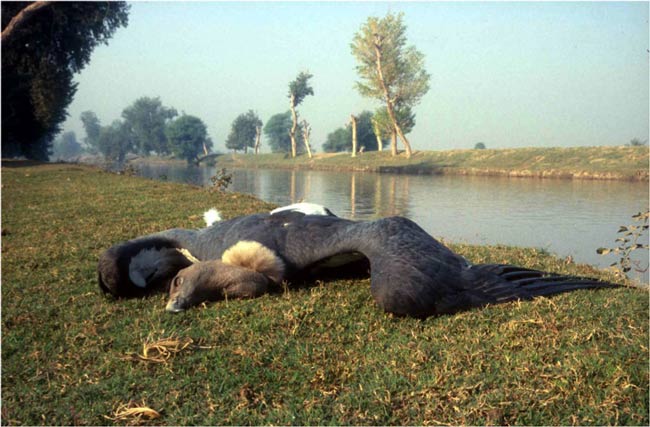Save the Vultures… and Save Thousands of People

Get the world’s most fascinating discoveries delivered straight to your inbox.
You are now subscribed
Your newsletter sign-up was successful
Want to add more newsletters?

Delivered Daily
Daily Newsletter
Sign up for the latest discoveries, groundbreaking research and fascinating breakthroughs that impact you and the wider world direct to your inbox.

Once a week
Life's Little Mysteries
Feed your curiosity with an exclusive mystery every week, solved with science and delivered direct to your inbox before it's seen anywhere else.

Once a week
How It Works
Sign up to our free science & technology newsletter for your weekly fix of fascinating articles, quick quizzes, amazing images, and more

Delivered daily
Space.com Newsletter
Breaking space news, the latest updates on rocket launches, skywatching events and more!

Once a month
Watch This Space
Sign up to our monthly entertainment newsletter to keep up with all our coverage of the latest sci-fi and space movies, tv shows, games and books.

Once a week
Night Sky This Week
Discover this week's must-see night sky events, moon phases, and stunning astrophotos. Sign up for our skywatching newsletter and explore the universe with us!
Join the club
Get full access to premium articles, exclusive features and a growing list of member rewards.
Vultures are more valuable than you may think, or at least they were.
In the 1980s, more than 40 million vultures existed throughout India, where they ate about 12 million tons (11 million metric tons) of rotting flesh each year, according to the environmental writer Tony Juniper. Today, however, vulture populations have been reduced to only a few tens of thousands, and three of the most important species are listed as critically endangered by the International Union for Conservation of Nature (IUCN).
They have declined largely because ranchers started giving their cattle an anti-inflammatory drug called diclofenac that is toxic to the birds, which eat dead cattle, Juniper writes. Without vultures to eat this festering morass, wild dogs have taken their place and populations have boomed. The dogs have, in turn, spread rabies by biting humans, killing an estimated 50,000 people in the last couple decades, according to Juniper.
"Deaths of course have much more than financial consequences, but they do have financial consequences, not least for the families of the dead" and the Indian economy, writes Julian Champkin at Signifance, the bimonthly magazine and website of the Royal Statistical Society. This cost is an eye-watering $34 billion, according to Juniper.
Once described as the world's most plentiful raptor, the critically endangered white-rumped vulture (Gyps bengalensis) has declined by more than 99.9 percent in just 15 years, the IUCN reports.
Vultures, disliked as they may be for their motley appearance and association with death, once provided billions of dollars worth of services for humanity. The same is true for other animals, and other aspects of the ecosystem (like rain forests), writes Juniper in his new book "What Has Nature Ever Done For Us? How Money Really Does Grow on Trees" (Profile Books, 2013). He argues that ecosystems have created all of the things that humans value, including humans themselves and our markets; therefore, economic values are meaningless if they don't consider environmental impacts.
"The truth is that the economy is a wholly owned subsidiary of ecology, not the other way around," he said.
Get the world’s most fascinating discoveries delivered straight to your inbox.
There are several captive breeding programs to reintroduce vultures to the wild, according to the IUCN.
Reach Douglas Main at dmain@techmedianetwork.com. Follow him on Twitter @Douglas_Main. Follow LiveScience on Twitter @livescience. We're also on Facebook & Google+.
 Live Science Plus
Live Science Plus











